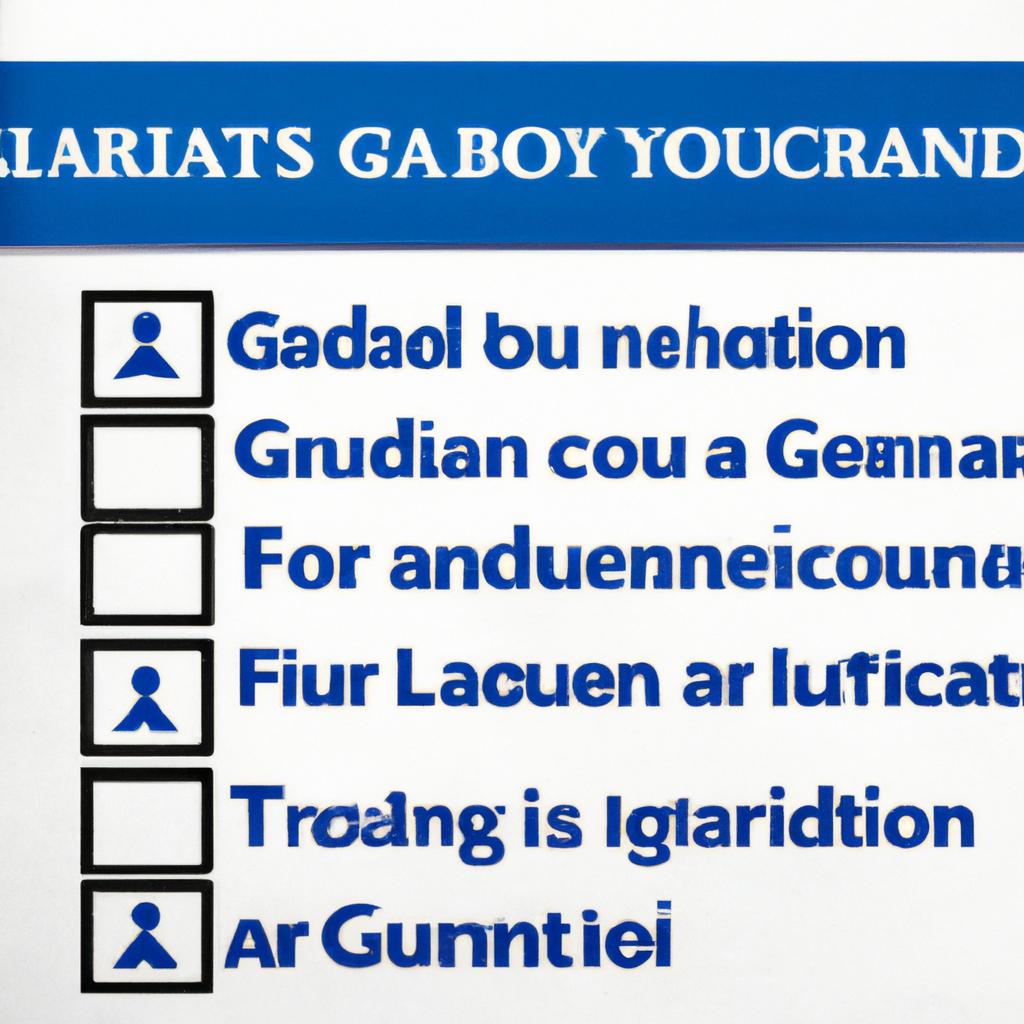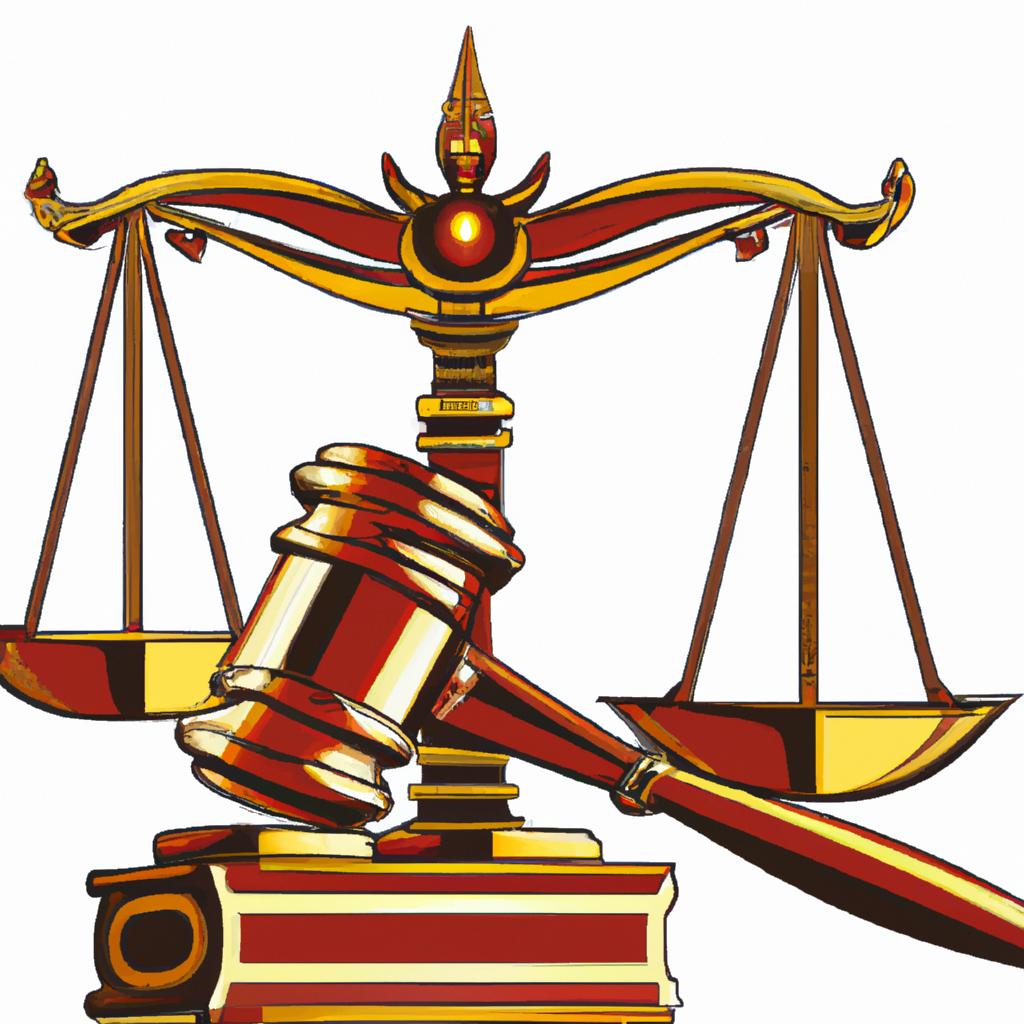In the intricate arena of family law, the concepts of legal guardianship and custody are often at the forefront of discussions surrounding the well-being and care of minors. As experienced legal professionals at Morgan Legal Group in New York City, we navigate the complexities of these two distinct legal concepts with precision and clarity. In this article, we delve into the nuanced differences between legal guardianship and custody, shedding light on the crucial aspects that individuals and families must consider in matters of child care and protection. Join us as we unravel the intricacies of legal guardianship versus custody with an expert’s eye for detail and a commitment to providing comprehensive legal guidance.
Legal Guardian vs Custody: Understanding the Key Differences
When it comes to legal matters involving children, understanding the key differences between a legal guardian and custody is crucial. While both roles involve caring for a child, there are distinct differences that must be taken into account.
**Legal Guardian:**
- A legal guardian is appointed by the court and is responsible for making decisions on behalf of a child.
- A legal guardian has the authority to make decisions regarding the child’s education, healthcare, and overall well-being.
**Custody:**
- Custody refers to the physical care and control of a child.
- Parents or legal guardians with custody have the right to make day-to-day decisions about the child’s care and upbringing.

Legal Guardian Responsibilities: A Closer Look
When it comes to legal guardian responsibilities, it’s important to understand the key differences between being a legal guardian and having custody of a child. While both roles involve caring for a child’s well-being and making decisions on their behalf, there are distinct differences in the scope of responsibilities.
**Legal guardians** are appointed by the court and are responsible for making important decisions regarding the child’s education, healthcare, and overall welfare. They are also tasked with ensuring the child’s safety and providing a stable living environment. On the other hand, **custody** typically involves physical care and control of the child on a day-to-day basis, without the same legal decision-making authority as a legal guardian.

Factors to Consider When Deciding Between Legal Guardian and Custody
When deciding between legal guardian and custody, there are several factors that must be carefully considered to ensure the best outcome for all parties involved. Here are some key points to keep in mind:
- Best interests of the child: The primary consideration in any decision regarding guardianship or custody is the well-being and best interests of the child. It is important to assess which arrangement will provide the most stable and nurturing environment for the child to thrive.
- Legal rights and responsibilities: Understanding the legal rights and responsibilities that come with both legal guardianship and custody is crucial. Legal guardians may have different rights and obligations compared to custodial parents, so it is important to be well-informed before making a decision.

Recommendations for Choosing the Right Option: Legal Guardian or Custody
When considering whether to choose a legal guardian or custody for a minor, there are several factors to take into account. Both options involve different levels of responsibility and decision-making power, so it is important to carefully weigh the pros and cons of each before making a decision. Here are some recommendations to help you choose the right option:
Consider the following:
- Legal guardian: A legal guardian is appointed by the courts and is responsible for making decisions on behalf of the minor, including financial and medical decisions.
- Custody: Custody grants physical control and responsibility for the minor to a parent or guardian, but does not necessarily include legal decision-making authority.
Q&A
Q: What is the difference between a legal guardian and having custody of a child?
A: Legal guardianship and custody are legal terms that refer to the rights and responsibilities of caring for a child, but they have different implications.
Q: What does it mean to be a legal guardian?
A: A legal guardian is a person who has been appointed by a court to care for a child and make decisions on their behalf. This often happens when the child’s biological parents are unable to fulfill that role.
Q: How does custody differ from legal guardianship?
A: Custody refers specifically to the physical care of a child, as well as the right to make decisions about their upbringing. A parent may have custody of their child even if they are not the legal guardian.
Q: Can a person have both legal guardianship and custody of a child?
A: Yes, it is possible for a person to have both legal guardianship and custody of a child. This may happen if the child’s biological parents are no longer able to care for them, and the court appoints a new guardian while also granting custody to the same person.
Q: Is legal guardianship permanent?
A: Legal guardianship can be temporary or permanent, depending on the circumstances. It may be terminated if the court deems that the child’s best interests are no longer served by the guardian.
Insights and Conclusions
In conclusion, the distinction between a legal guardian and custody is crucial in determining the rights and responsibilities of individuals caring for minors. While both roles involve providing for the well-being of children, the legal guardian holds more authority over important decisions regarding the child’s upbringing. Understanding the nuances of these terms can help ensure the best interests of the child are protected. Whether you are navigating the legal system as a guardian or seeking custody of a loved one, being informed about these concepts is key. Thank you for reading.
 Legal Guardian vs Custody: Understanding the Key Differences
Legal Guardian vs Custody: Understanding the Key Differences
When it comes to the care and well-being of a child, there are important legal concepts that parents and guardians must understand. Two commonly used terms in family law are “legal guardian” and “custody”. While both terms may seem similar, they actually have significant differences and understanding these differences is crucial for anyone involved in a custody or guardianship situation.
In this article, we will delve into the definitions and distinctions between legal guardian and custody, how they are granted, and their respective roles and responsibilities.
Legal Guardian: Definition and Process
A legal guardian is an individual who has been appointed by a court to make important decisions for a child, such as healthcare, education, and general welfare. This is typically done when the child’s parents are unable or unwilling to fulfill these duties. Legal guardianship is often sought by relatives or other trusted individuals when the parents are not able to provide a safe and stable environment for the child.
The process of obtaining legal guardianship begins with filing a petition with the court. This petition must include details about the child’s current living situation and why the petitioner believes that a guardianship is necessary. The court will then review the petition and conduct a hearing to determine if the proposed guardianship is in the best interest of the child.
Once the guardianship is granted, the legal guardian has the same rights and responsibilities as the child’s parent. This includes making important decisions for the child and providing for their basic needs. However, it’s important to note that legal guardianship is not permanent and can be terminated if the court deems it to be in the best interest of the child.
Custody: Definition and Types
Custody refers to the legal right and responsibility of a parent or guardian to make important decisions for a child. A parent with custody is responsible for the child’s physical care and well-being, as well as making decisions regarding their education, healthcare, and other important aspects of their life.
There are two types of custody: physical custody and legal custody. Physical custody refers to where the child will live and who will provide for their daily care, while legal custody grants the right to make important decisions for the child. Custody can be granted to one or both parents, depending on the specific circumstances of the case.
Custody can also be further categorized as sole custody or joint custody. Sole custody means that one parent has the exclusive right to make decisions for the child and has physical custody. On the other hand, joint custody means that both parents share the responsibility of making important decisions for the child and may have equal or unequal amounts of physical custody.
Key Differences Between Legal Guardian and Custody
Despite having similar roles and responsibilities, there are key differences between legal guardian and custody that one must understand. The main difference is that guardianship is granted by the court while custody is determined by a family law judge.
Guardianship is typically granted when the child’s parents are unable to provide for their basic needs, while custody is usually determined in cases of divorce or separation. Furthermore, legal guardianship may be temporary or permanent, while custody can also be modified by the court if circumstances change.
Benefits and Practical Tips for Legal Guardianship and Custody
Legal guardianship and custody can provide a sense of stability and protection for children in need. They offer a safe and structured environment for children to thrive and can help ensure that their best interests are taken into consideration in important decisions regarding their upbringing.
For those seeking legal guardianship or custody, it is essential to have a solid understanding of the legal process and the responsibilities that come with these roles. It’s also important to maintain open and honest communication with the child’s biological parents, if possible, as their input and involvement can benefit the child greatly.
Case Study: Gregory’s Story
Gregory was a 10-year-old boy whose parents were facing drug addiction and homelessness. Fearing for their son’s safety and well-being, the grandparents stepped in and filed for legal guardianship. The court granted their petition and the grandparents were able to provide Gregory with a stable and loving home, allowing him to continue his education and receive proper healthcare.
After six years, Gregory’s parents successfully completed a rehabilitation program and their living situation improved significantly. They were able to regain custody of their son and the grandparents’ guardianship was terminated. This was made possible due to the court’s understanding of the temporary nature of legal guardianship and their prioritization of the best interest of the child.
Firsthand Experience: The Importance of Legal Guardian and Custody
As a legal guardian myself, I have had firsthand experience with the responsibilities and challenges that come with this role. It is a great privilege to have the opportunity to provide stability and guidance for a child in need. It is also vital to establish a healthy and open relationship with the child’s biological parents, as their involvement can greatly impact the child’s emotional well-being.
In Conclusion
In summary, legal guardian and custody are two important legal concepts used to provide a safe and stable environment for children in need. While they may seem similar, they have distinct differences in terms of their legal process, duration, and responsibilities.
Whether seeking legal guardianship or custody, it is crucial to have a solid understanding of the legal aspects and responsibilities that come with these roles. By prioritizing the best interest of the child and maintaining open and honest communication with all parties involved, we can ensure that the children’s well-being is safeguarded and their best interests are taken into consideration.

